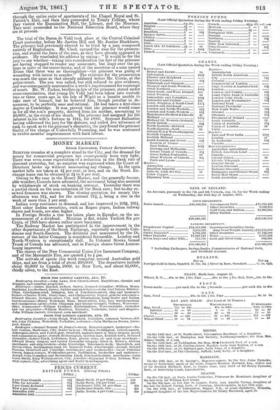The trial of the Baron de Vidil took place at
the Central Criminal Court yesterday, before Mr. Justice Hill and Mr. Justice Blackburn. The prisoner had previously elected to be tried by a jury composed entirely of Englishmen. Mr. Clark opened the case for the prosecu- tion, and stated the facts of the case, as they have already appeared in evidence. He concluded his address by saying : "It would be for the jury to say whether-taking into consideration the fact of the prisoner not having stopped to render any assistance, but leapt over the pa- lings in spite of the tenter-hooks, and of the assertion of a man named Evans that there was no thoroughfare-the prisoner was guilty of wounding with intent to murder." The evidence for the prosecution was much the same as that already adduced before Mr. Currie, at the police-court. The son was called, but still refused to give evidence, and was consequently sentenced to a week's imprisonment for contempt of court- Mr. W. Parker, brother-in-law of the prisoner, stated under cross-examination, that young De Vidil had been taken into custody two or three years ago in the Isle of Wight as a lunatic unable to take care of himselt, but he believed him, though peculiar in de- meanour, to be perfectly sane and rational. lie had taken a first-class degree at Cambridge. It was proved that the prisoner would come in for all the son's property, derived from his mother, amounting to 20,0001., in the event of his death. The prisoner had assigned his life interest in his wife's fortune in 1844, for 4800/. Serjeant Ballantine having addressed the jury. for the defence, and called five witnesses of rank to speak as to the prisoner's character, the juryfound the prisoner Guilty of the charge of Unlawfully W ounding, and he was sentenced to -twelve months' imprisonment with hard labour.






























 Previous page
Previous page